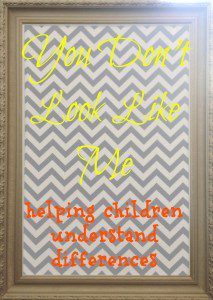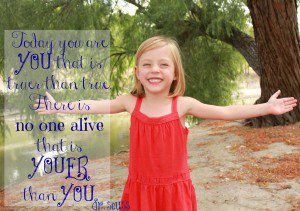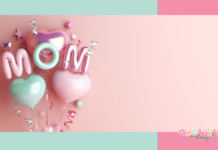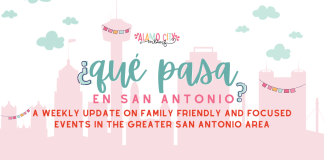 I’ll never forget my first cheer camp. We spent the night away from home for two nights and spent our days learning stunts, chants, and tumbling. Yes siree, life was good. Until it wasn’t.
I’ll never forget my first cheer camp. We spent the night away from home for two nights and spent our days learning stunts, chants, and tumbling. Yes siree, life was good. Until it wasn’t.
The camp ended with the requisite exhibition for the parents. I was back-row material at best so this performance made me nervous in and of itself. And then came the performance outfit, or, more aptly, the sports bra we were to wear. In front of everyone. I stood alone in my room, holding this small piece of fabric, feeling like the air was being sucked from my lungs. You see, I did not wear anything that showed my stomach because I learned at an early age that a feeding tube and open-heart surgery scars were not the norm. And not the norm made my little middle school heart sink.
Breathe, I reminded myself. Just be strong; act like you don’t care that a certain queen bee says, unnecessarily loudly, “Eww! What’s that thing on your stomach? It looks like you have two belly buttons. Gross!”
I don’t mind my scars – they are a part of my story of survival. Most babies born without a ventricular septum (the wall between the bottom chambers of the heart, for the layperson) in the early 80’s didn’t survive the extensive surgery. I like that I have a story. My struggle was with unkind or even cruel remarks. My struggle was with the inability of others to discuss my scars in a respectful way.
One of the biggest challenges we have as parents is to teach our children how to handle others when he or she is different. My largest scar is easily covered, so I didn’t have to deal with comments on a daily basis, but there are many people whose scars, limb differences, or special needs are something he or she faces daily.
I called on a few of my dear friends who have children with various differences to be my Mamas of Kids with Differences Panel. I appreciate all of their advice and input! Thank you for being confident women who are empowering your children to have a positive self-image and to educate those around you![hr]
Helping Your Child to Lovingly and Respectfully Deal with Others’ Differences
It’s not what you say, it’s how you say it. I never, ever mind if people ask me about my scars. In fact, I prefer it to awkward stares, pointing, or whispering. Mamas, teach your children how to ask about differences in a kind way, because no one wants to hear, “What’s WRONG with you?” It’s okay to ask about a child in a wheel chair or who is missing a limb, as long as you’re being mindful of your delivery. Parents of children with differences will hopefully understand that all kids are quizzical and curious about their surroundings; kids want to understand why people are the way they are. As long as your questions are respectful, parents and children old enough to deal with it on his or her own will likely appreciate your thoughtful approach.
Ban hurtful words. In my house if you say “eww” or “gross” you better be talking about the broccoli on your dinner plate or a giant bug. We, as parents, should have no tolerance for kids who refer to other children with cruelty. One of the resounding themes I heard from my friends was to teach your child that EVERYONE is different. Brooke, our very own ACMB co-founder, said, “Some kids have freckles, some have red hair, some kids learn differently than others do, some wear glasses, and some have scars. Everyone has something that makes them unique. Try to find what makes your child a little ‘different’ or unique so they aren’t so quick to point out kids that have very visual differences.”
Acknowledge me, too! Sometimes children with differences are unable to socialize or play the way “average” children do. Understandably, it is hard for kids to understand how to include children that perhaps can’t run and play, or verbally communicate. Help your child to always remember to recognize this child and even ask the parent how the child with special needs can best interact with your child. A friend of mine has a child with special needs due to an anoxic brain injury said, “I want people to understand that even though [her child] can not communicate on a normal functioning level that he does understand and wants to be acknowledged.” A simple hello, singing songs, or telling a story are good ways to start.
Go easy on other mamas, mama. Often a child’s difference isn’t a scar or other external manifestation. When a child has a special need that we can’t see with our eyes us mamas can tend to think that the child is just naughty and/or that the parent isn’t doing his or her job well. My friends Lisa, who is both a mommy to a child with scars from his open-heart surgeries and a Licensed Professional Counselor Intern, helps many families of children with anything from ADHD to epilepsy to autism said, “As onlookers, we should all try to be sensitive to parents with children [with special needs] and not allow ourselves to judge other children’s behavior, but rather offer support, hold a door open, show a smile or even say, ‘I’ve been there! Hang in there!’.” We’re all trying our best, so let’s support one another because you never know with what that mama is experiencing day in and day out.[hr]
Helping Your Child Accept His or Her Difference
 Embrace your story. As I mentioned above, my Mama Panel reminded me time and again that we are all different, just that some of our differences are more obvious or affect us more than others. Lisa said, “We never want our son’s heart condition to define him or hold him back in any way… [His scars and heart condition] do not define our family, it’s just a PART of who we are.” Everyone has a story, and my fabulous parents reminded me that mine happened to be a whole lot cooler than most people’s (yeah, that’s right, I’m bragging about my scar – and so should your kid!). Dr. Seuss had it right – no one is youer than you. Own it.
Embrace your story. As I mentioned above, my Mama Panel reminded me time and again that we are all different, just that some of our differences are more obvious or affect us more than others. Lisa said, “We never want our son’s heart condition to define him or hold him back in any way… [His scars and heart condition] do not define our family, it’s just a PART of who we are.” Everyone has a story, and my fabulous parents reminded me that mine happened to be a whole lot cooler than most people’s (yeah, that’s right, I’m bragging about my scar – and so should your kid!). Dr. Seuss had it right – no one is youer than you. Own it.
Practice makes perfect. Equipping your child for conversations about what makes him different from others can make a huge impact on his ability to handle questions from curious peers. This is helpful for siblings of a child with a difference, too, especially if that child can’t communicate for him or herself. If your child is outgoing and goofy, encourage her to take a lighthearted tone, ““My brother is in a wheelchair because he has special needs. You should see me fly down the ramp with him! We go so fast – it’s awesome!” Or try a comical approach. “Yup, I have to wear braces on my legs – at least they match my outfit!” If your child is quieter or more serious, encourage him or her to give a simple, short answer and then move on. “I had open-heart surgery but I’m fine now.” Or, “I was born with one arm. It’s no big deal.” Done. Whatever tactic seems to fit your child best, provide practice for him so he won’t be caught off guard when children ask questions.
Have realistic expectations. Unfortunately, people are unkind. Sometimes out of spite, but most often out of ignorance. These are the same people who ask how far along you are, even though you aren’t pregnant, or ask you why you decided to cut your hair, it used to be so cute. They don’t think before they speak. If your child has a difference, people will ask, stare, and can be generally ugly. Prepare yourself for it, because there is strength in expectations. Just like you teach your child to respond to others, you too should have a calm, straightforward response to gawkers and rude comments. Also, talk with pride about your child, not difference, “Yes, Carrie has cystic fibrosis. You know what else? She’s such a good artist – you should see the project she made for me last week!” Lastly, you might help teach ill-mannered people polite behavior, if you’re up for it. Saying something like, “I know you aren’t trying to be unkind, but if you could ask your question more thoughtfully next time you could spare others’ feelings.” The good news is, though, I think you’ll be pleasantly surprised at how many people do show care.












I recently found this website and have been reviewing all the articles. This one is SO IMPORTANT! What a good message. I especially appreciate the part about going easy on other mothers.
I also really appreciate the part about having realistic expectations. A lot of people don’t realize they’re being hurtful, and that’s hard for me to remember.
It’s so important to set the example for our children, and show them how to interact with people who are different. Loved it!
This is such a great post, Maggie, and thank you for sharing it with us. One of my favorite stories to share with children about understanding that we are all unique in our own way is “It’s Okay to Be Different” by Todd Parr. Another teacher also introduced me to a book written by a class of Kindergarteners called “We Are All Alike… We Are All Different”. My children LOVE these books and are so helpful with understanding, especially with learning and behavior differences. I’d love to learn about more if anyone has any suggestions!
Great suggestions, Lindsay! Books can be an important (and FUN!) way to teach kids about differences. My friend, Lisa, suggested a book called “Zip Line” about open-heart surgery scars.
Loved this post! My daughter was born with three (benign) tumors that have huge birthmarks on top of them. She’s only a toddler so we haven’t had to talk to her about them too much, but I have had several occasions where older kids come poke them and say “what IS that?!?” and I never knew quite how to handle it. Her doctor said we may need to get them removed in a year or two but for now we will just focus on telling people her story when they inquire 🙂
Alisa, I hope this post helps equip you for (sometimes rude) informing children and parents alike about your daughters differences. Stay strong, mama, and I know you’ll do a great job of imparting confidence in your daughter 🙂